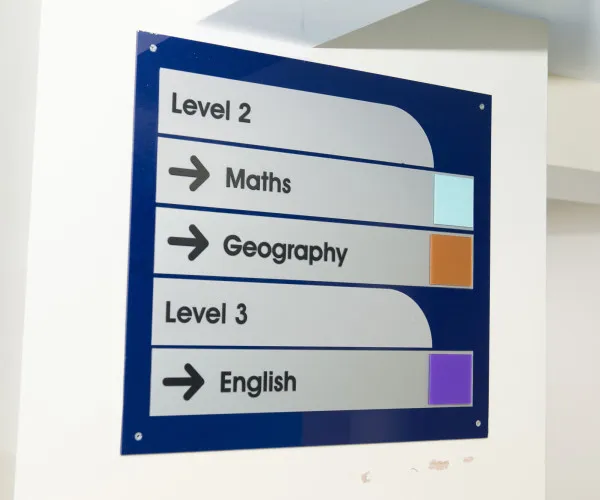- For Students, Parents/Carers
- Rewards
- The Behaviour System
- Careers Information & Guidance (Progression)
- Charging & Remissions
- E-Safety links and advice
- Free School Meals
- Remote Learning Provision
- Home Learning
- Home School Agreement
- Letters Home
- Mental Health and Wellbeing
- New Students
- Reading for Pleasure at Home
- Safeguarding
- Arbor Pay
- SEND
- Snow & Adverse Weather
- Children's Centre
- Enrichment
Options at Post 16

Sixth Form
With the new £2.6m expansion of Temple Moor Sixth Form due to be completed in September 2024, we offer a wide variety of level 2 and 3 courses, from A-Levels, vocational BTEC courses and T-Levels. For level 2 courses students will need 3 GCSEs at level 2 and above including English and Maths. For level 3 courses, students will need to achieve 5 GCSEs at grade 4, although some subjects have specific entry requirements. For example, to study Biology at A Level, students need to have achieved 6-6 in Combined Science or 6 in Biology at GCSE and a grade 5 in Maths. Students wishing to study predominately A Levels will also need a 4 grade in Maths and English. If students do not achieve a grade 4 in English or Maths they will need to re-sit that GCSE alongside their Sixth Form choices. To view our prospectus, please click the link below:
College
Colleges run a variety of courses, from A Levels to specific work related qualifications. There are courses available at different levels so whatever grades are achieved at GCSE there will be a suitable course at college. There are a number of different colleges in Leeds, some offering a wide variety of courses (Leeds City College) and some focusing on a specific area (Leeds College of Building and Leeds Arts University). Students interested in Agriculture/Horticulture/Animal Care/Equine may also travel to Askham Bryan College in York.
Apprenticeship
This involves working for an employer and training to do a specific job. Usually this means working four days each week and going to college one day each week. There are over 280 types of apprenticeship for over 1,500 job roles – anything from engineering to boat-building, or veterinary nursing to accountancy.
There are different levels of apprenticeship from level 2 Intermediate to Degree Apprenticeships. A degree apprenticeship involves working 4 days a week and going to University 1 day a week. This means that apprenticeships can be started after Year 11 or at a higher level after Year 13. Wages vary greatly, the national minimum wage for an apprentice is £3.90 an hour but many employers pay much more than this.
- For Students, Parents/Carers
- Rewards
- The Behaviour System
- Careers Information & Guidance (Progression)
- Charging & Remissions
- E-Safety links and advice
- Free School Meals
- Remote Learning Provision
- Home Learning
- Home School Agreement
- Letters Home
- Mental Health and Wellbeing
- New Students
- Reading for Pleasure at Home
- Safeguarding
- Arbor Pay
- SEND
- Snow & Adverse Weather
- Children's Centre
- Enrichment












